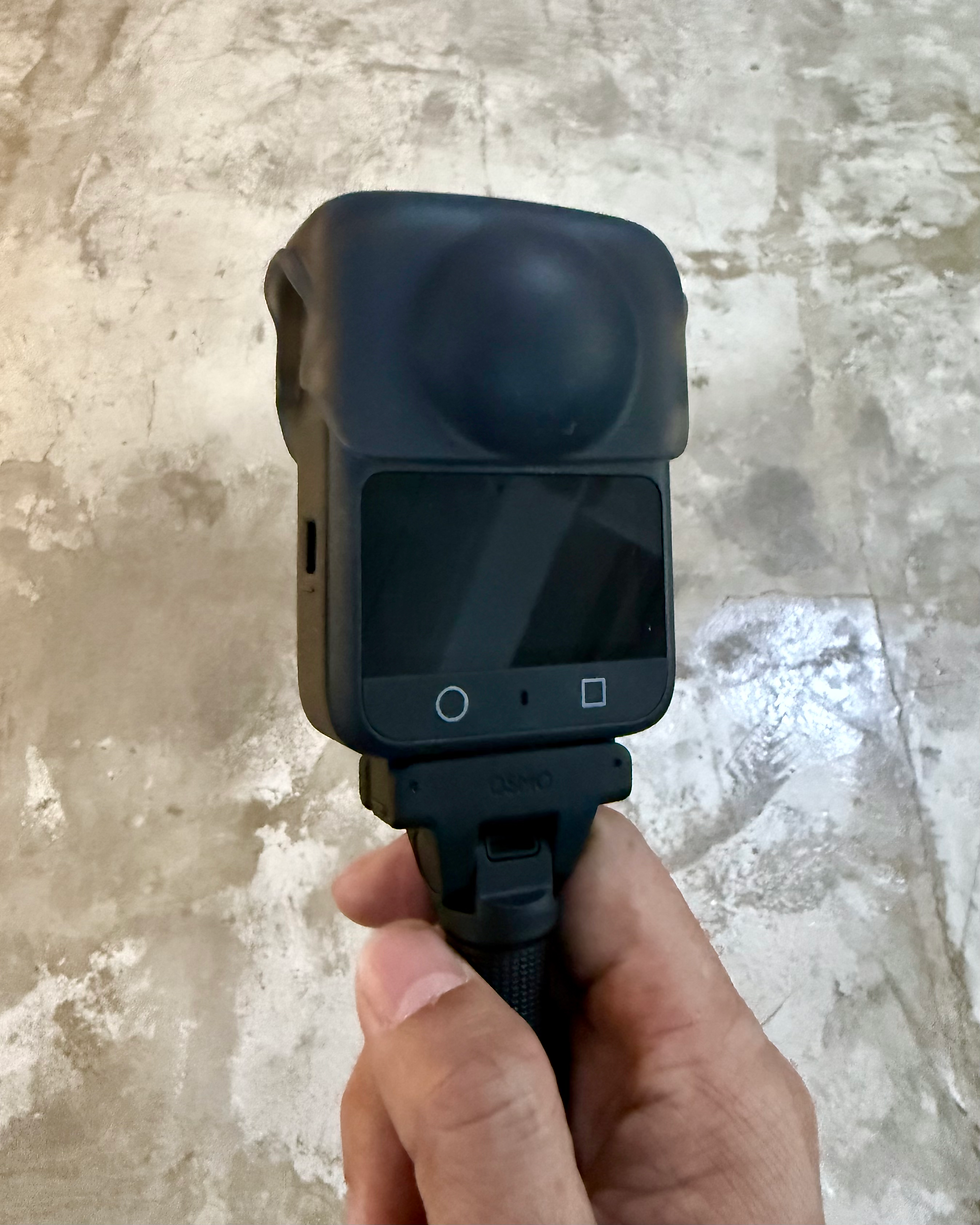The Challenger: DJI Osmo 360
- Jaydee Chua-Gungon
- Aug 6, 2025
- 2 min read
Updated: Aug 9, 2025
DJI has officially entered the 360-camera arena with the launch of the DJI Osmo 360, a direct challenger to the reigning leader, the Insta360 X5.

The arrival of the Osmo 360 has been highly anticipated, as DJI expands its ecosystem beyond drones, gimbals, and action cameras. The big question: how does it stack up against Insta360’s flagship X5?
Unboxing & First Look
Out of the box, the DJI Osmo 360 comes with protective lens covers, a USB-C charging cable, quick start guide, and warranty card. Some kits also include a selfie stick/tripod.
At just 183 grams, the Osmo 360 is lighter than expected and feels premium in hand.

Specs & Features
The Osmo 360 brings powerful hardware in a compact frame:
Dimensions: 61 × 36.3 × 81 mm
Weight: 183 g
Waterproof: Up to 10m (without case)
Touchscreen: 2.0” display, 314 × 556 resolution, 800 nits
Storage: 128 GB built-in (105 GB usable) + microSD expansion up to 1TB
Audio: 4 microphones, 48kHz 16-bit AAC recording
Battery: 1950 mAh

Camera capabilities:
Sensor: 1/1.1-inch CMOS
Aperture: f/1.9
Dynamic Range: 13.5 stops
Max Photo: 120MP
Max Video: 8K @ 30fps / 6K @ 60fps / 4K @ 100fps
Stabilization: RockSteady 3.0 + HorizonSteady
Square Sensor Advantage
One of DJI’s most notable design choices is its square 4:3 sensor, compared to the Insta360 X5’s rectangular sensors.
Traditional rectangular sensors often lose data when stitched into a sphere for 360 video. DJI’s square approach makes fuller use of the sensor area, translating to sharper detail, higher effective resolution, and cleaner dynamic range.
Performance Tests
Sharpness: At 8K panoramic mode, the Osmo 360 delivers crisp edge-to-edge detail with DJI’s natural-looking processing.
Low Light: While the Insta360 X5 remains superior in dark conditions thanks to its dual 1-inch sensors, DJI’s 1/1.1-inch sensor and f/1.9 aperture still produce strong results with well-controlled noise.
Battery & Heat: The 1950 mAh battery offers around 100 minutes at 5.7K and 65–70 minutes at 8K. Thermal shutdowns may occur after 35–40 minutes of 8K recording in warm environments, though performance is stable at 6K and below.
DJI Ecosystem Integration
A major selling point for the Osmo 360 is its ecosystem compatibility. Paired with the DJI Mic 2, users can capture seamless, wireless audio with perfect sync, eliminating the need for adapters or third-party solutions.
For vloggers, this significantly boosts the camera’s practicality as a daily driver.

Pricing in the Philippines
According to Camerahaus (special mention to staff Gae and Rob):
DJI Osmo 360 – ₱24,990 (with 128GB built-in storage, ~105GB usable)
Insta360 X5 – ₱32,990 (no built-in storage, microSD required)
That’s a ₱8,000 price difference, with DJI offering built-in memory as part of the package, is a strong value advantage.
Conclusion: King vs Challenger
The DJI Osmo 360 makes a bold entrance into the 360 camera space:
Bigger 1/1.1-inch square sensor design
Native 8K recording
Built-in storage
DJI ecosystem integration (Mic 2)
The Insta360 X5 continues to lead in low-light performance and overall maturity, but at a higher cost.
With DJI undercutting Insta360 by roughly ₱8,000 while delivering native 8K and ecosystem synergy, the battle lines are drawn.

The question now is, who wins this 360 showdown? The reigning king, Insta360 X5, or the new challenger, DJI Osmo 360?




Comments